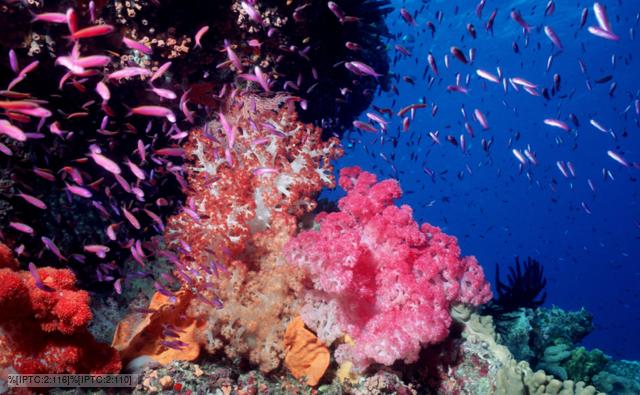At Sustainable Seas we really enjoy and think it is important to collaborate with colleagues around the world who are passionate about marine conservation and sustainability and who are committed to making a difference. Recently we collaborated with Lindsey Wright who is a writer for the Online Schools website and resource. Lindsay has posted a great piece on ways primary and secondary educators can teach their students about marine conservation.
Three Marine Conservation Lessons for Kids
The phrase “the future belongs to the children” is perhaps nowhere more appropriate than when it comes to the future of the environment and the world's oceans. According to the United Nations 70 percent of the world's fish stocks are “fully exploited” or “depleted.” Part of the problem is overfishing, and pollution continues to be an issue. Oceans everywhere are becoming less habitable for marine life due to land-based activities. From raw sewage dumps to the infamous “plastic continent” in the middle of the Pacific Ocean, pollution is a serious threat to marine life. If today's primary and secondary students are our future, then clearly teachers must impart to young students the importance of taking care of our oceans. Luckily, there are a variety of lesson plans teachers can employ to get even the most reluctant learners interested in marine conservation.
1. Endangered Marine Animals
Teachers can explain to students that many marine animals are currently endangered. Teachers and students can then explore together the various human activities that are leading to this endangerment, such as legal and illegal hunting, pollution, and habitat disruption. Teachers should then have students choose one particular endangered marine animal on which they would like to focus. Younger students might draw pictures of this animal, and include the commercial ships or other activities that are threatening it in their drawings. Older students might work individually or in pairs to create a poster and written or oral report about the endangered animal and what actions could be taken to reverse the problem.
2. Food Chains and Marine Habitats
One common concern that scientists have about marine life is that pollution is killing the micro-organisms that small invertebrates, such as krill, feed upon. Once the populations of krill begin dying off, the larger animals that feed upon krill also become endangered. This exploration of the marine food chain is an excellent way to teach how the plants and animals in an ecosystem are all interdependent, and how depletion of one small organism can have a dangerous chain reaction that reverberates all the way up the food chain. In order to better understand this concept, students can make drawings of the circular nature of the food chain, as well as illustrations of what happens when any one part of that food chain is disrupted. As a final project, individuals or groups can present their illustrations to the class and explain what changes could be made to begin healing a particular ecosystem.
3. Understanding Oil Spills
The Deepwater Horizon oil spill remains the worst ecological disaster in American history, and the results of that spill still aren't fully understood. As a lesson linking current events, social studies, and science, teachers can have their older students research news and magazine articles about the oil spill and its impact. Some students might choose to focus their research on the negative economic and social impact of the spill on the local coastal communities, while other students might research how the spill is predicted to impact the Gulf itself in the near future and long term. Students could then present their findings in a variety of ways, from research papers to multimedia projects. This project will also help students develop their critical thinking skills as they examine and analyze the varied opinions on the impact of the spill, including those of local residents, scientists, and the companies responsible for the spill.
4. Field Trips
Not all students live close enough to the coast to visit the ocean directly, but most students live close enough to an aquarium, or at the very least a river system, to visit marine habitats and learn about the wildlife first-hand. Aquariums almost always offer a host of educational programs ideal for a broad age range of students. Teachers should definitely take advantage of these services in their area.
5. Artificial Reefs
Artificial reefs are one of the solutions scientists are exploring as a possible solution for dying reef systems. Teachers can inform students how reefs are being replaced with man-made objects, such as intentionally sunk military tanks, and inspire further interest in the topic by encouraging their students to consider what else might scientists "invent" as a way of repairing some of the damage mankind has done to the world's oceans. This lesson could be easily adapted to fit children of almost any age.
These five lessons are just a few ways students at the primary and secondary school levels can explore marine conservation. Other topics for exploration include: the impact of changing ocean temperatures due to climate change; the human impact of rising ocean levels; the current concerns over ocean pH levels; and how the Pacific Garbage Patch got to be in the middle of the ocean and how to get rid of it.
Public and private school teachers may not be the people who pass laws or directly influence policy makers, but by making children aware of the imperilled state of the world's oceans, they can definitely be positive agents for change. The lessons above can provide teachers with a jumping-off-point for teaching children to be good stewards of the oceans from an early age.








http://bonniebuoyancy.wordpress.com/